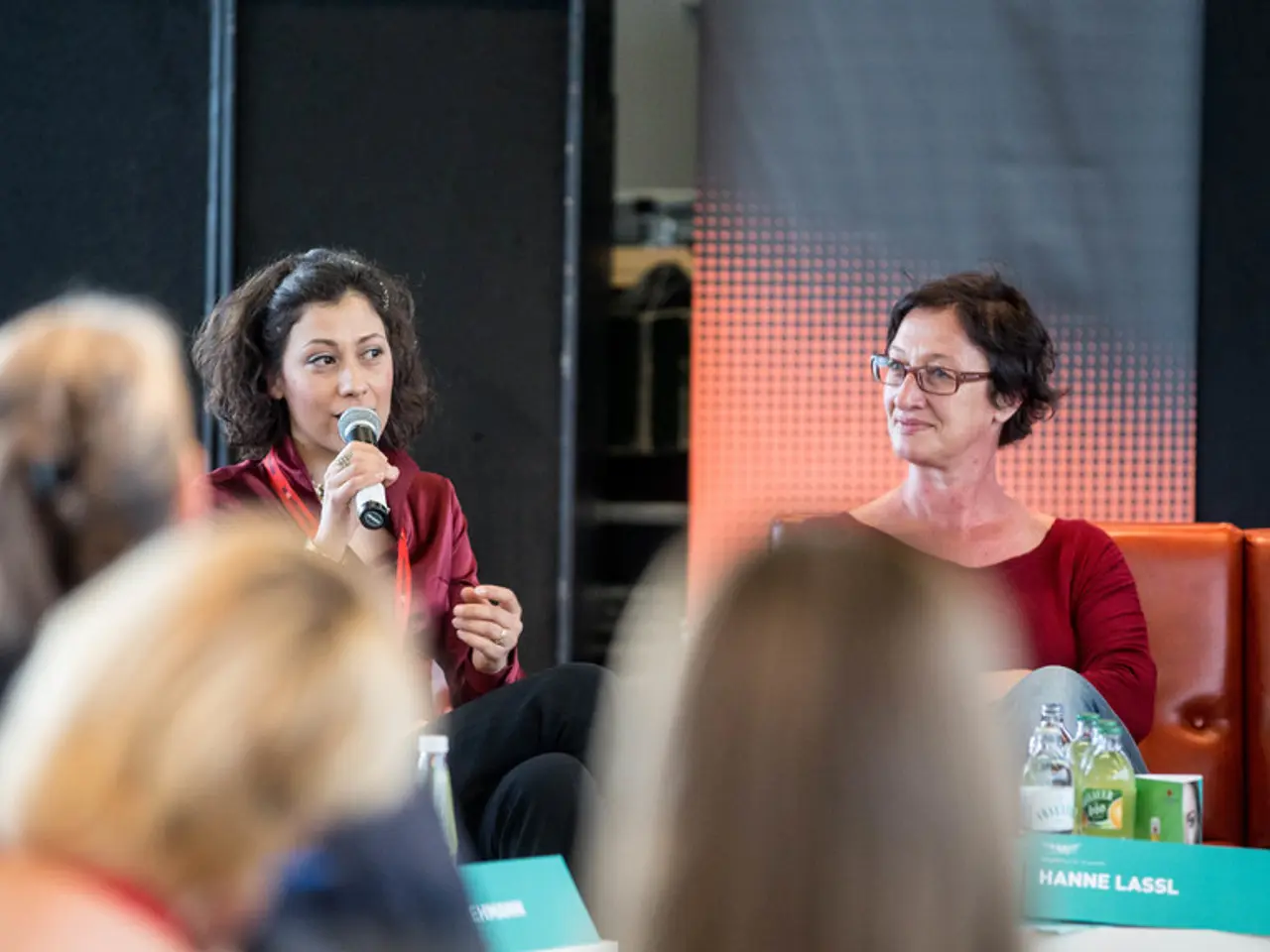Women seeking asylum in Germany continue to experience employment disparity
In Germany, many women who come to the country with young children face difficulties in attending German courses or accessing services provided by the government due to a shortage of child care workers. This is just one of the challenges that female refugees face in their integration journey.
Afsaneh Afraze, who works for GIZ / Society for Intercultural Coexistence in Berlin, criticizes the one-size-fits-all approach of integration courses in Germany. She argues that these courses often fail to address the unique needs and circumstances of women refugees, such as caregiving responsibilities and language barriers.
Studies show that there is a threefold disadvantage for refugee women, who are disadvantaged as women, immigrants, and refugees. This disadvantage is evident in the employment statistics. After eight years, 68% of people who fled violence or conflict in their home countries to come to Germany found work, but female employment levels are much lower than that of men. Two-thirds of women refugees remain unemployed after eight years, in contrast to 15% of adult male refugees.
Improving job opportunities and integration services for female refugees in Germany requires targeted measures to address the key barriers of language skills, child care shortages, and recognition of foreign qualifications.
Enhancing German language acquisition support is crucial for refugee women who wish to integrate into the German labor market. Tailored language courses that accommodate women’s schedules and caregiving responsibilities can help overcome the significant language barrier that limits labor market integration for female refugees.
Expanding affordable and accessible child care services is another essential measure. Since caregiving duties disproportionately hinder women’s employment, increasing the availability of child care facilities or providing subsidies and flexible care options can enable more women to engage in job training or employment.
Simplifying and facilitating recognition of foreign qualifications is also vital. Many female refugees face challenges validating their professional credentials, which limits their ability to work in their trained fields. Streamlining the credential recognition process and offering bridging courses or professional integration programs can help overcome this structural barrier.
Strengthening social networks and mentoring programs can also improve employment outcomes for refugee women. Programs that connect refugee women with German-speaking mentors or local professional networks can provide advice, language practice, and job leads.
Addressing systemic institutional barriers is also crucial. Policies should reduce residence status uncertainties and remove work restrictions that prolong unemployment among refugees, particularly women.
The project "Work for Refugees" has helped many women like Donya, a refugee from Afghanistan who fled the country due to death threats after her husband disappeared. Donya has been working in her current job for two years after completing an eight-month training program and German language courses. She is currently working as a care worker for the elderly in Germany.
The Work for Refugees Project, run by GIZ, Society for Intercultural Coexistence, and other cooperation partners, and funded by the Berlin Senate, offers free one-to-one counseling sessions, CV workshops, and job placement services. It also refers clients to organizations with special programs for women.
Inna Gissa, a Ukrainian refugee and job adviser for the Work for Refugees Project, found her first job in Germany in a hotel restaurant despite having limited German language skills due to her proficiency in English.
Many grassroots projects or organizations are staffed by women who have fled to Germany, such as Afsaneh Afraze and Inna Gissa, whose own experiences give them a better understanding of what the women they serve are going through.
Tent Deutschland organizes job fairs to help refugees find work through its network of 80 companies. These initiatives are essential in helping refugee women overcome the barriers to integration and find sustainable employment in Germany.
[1] "Improving Labour Market Integration for Refugee Women in Germany" - Federal Ministry for Economic Cooperation and Development (BMZ) [2] "Gender Equality in the Labour Market" - Federal Ministry for Family Affairs, Senior Citizens, Women and Youth (BMFSFJ) [3] "Integration of Refugees in Germany: Challenges and Opportunities" - Federal Office for Migration and Refugees (BAMF) [4] "Refugee Women and the Labour Market in Germany" - Bertelsmann Stiftung [5] "Integrating Refugee Women into the German Labour Market: Opportunities and Challenges" - Institute for Employment Research (IAB)
- The media often reports on the struggles female refugees face in integrating into German society, such as the difficulty in attending German courses or accessing government services due to a shortage of child care workers, and the threefold disadvantage they experience in employment, with two-thirds of women remaining unemployed after eight years compared to 15% of adult male refugees.
- To improve employment outcomes for refugee women, various targeted measures are being implemented, such as enhancing German language acquisition support with tailored courses that accommodate women’s schedules and caregiving responsibilities, expanding affordable child care services, simplifying and facilitating recognition of foreign qualifications, strengthening social networks and mentoring programs, and addressing systemic institutional barriers.
- Many grassroots projects or organizations, run by women who have sought refuge in Germany, work to help refugee women overcome barriers to integration and find sustainable employment, such as the Work for Refugees Project, Tent Deutschland, and various programs offered by the Federal Ministry for Economic Cooperation and Development, the Federal Ministry for Family Affairs, Senior Citizens, Women and Youth, the Federal Office for Migration and Refugees, the Bertelsmann Stiftung, and the Institute for Employment Research.
- Success stories, like that of Donya, a refugee from Afghanistan working as a care worker for the elderly in Germany after completing an eight-month training program and German language courses, demonstrate the potential for refugee women to flourish in their careers with the right support and resources.




